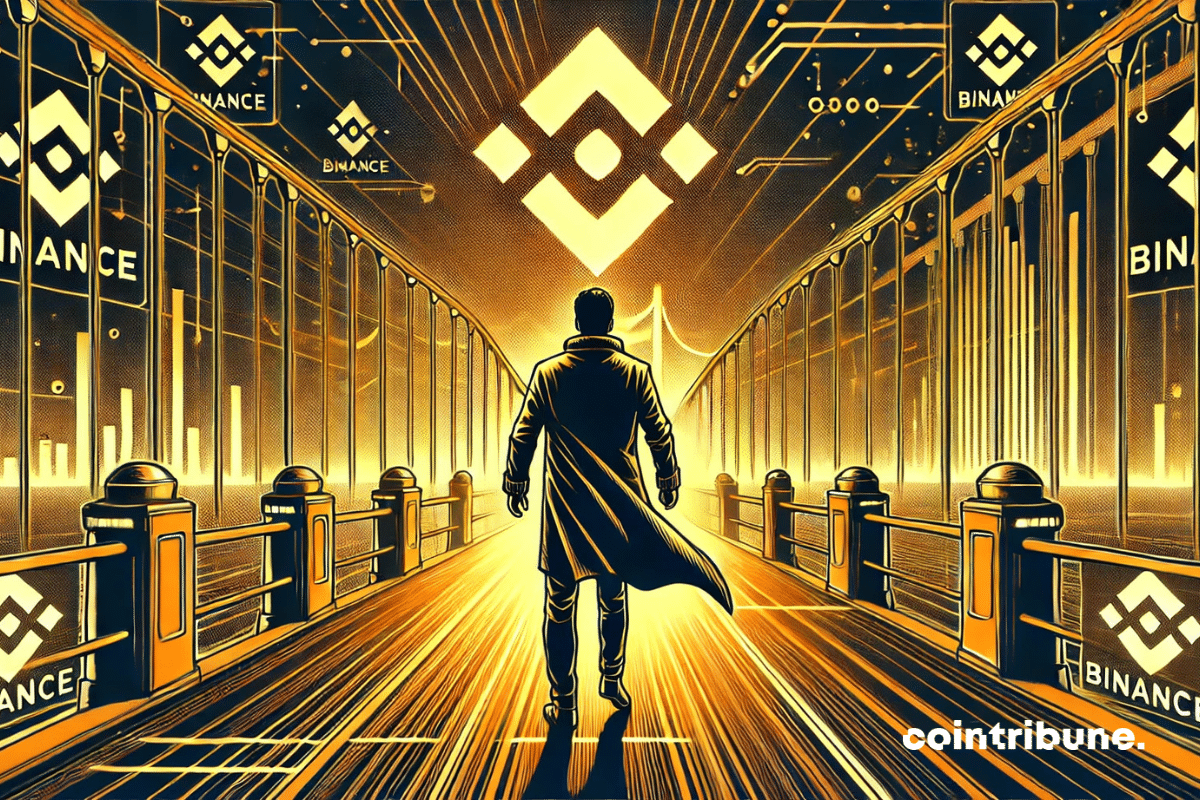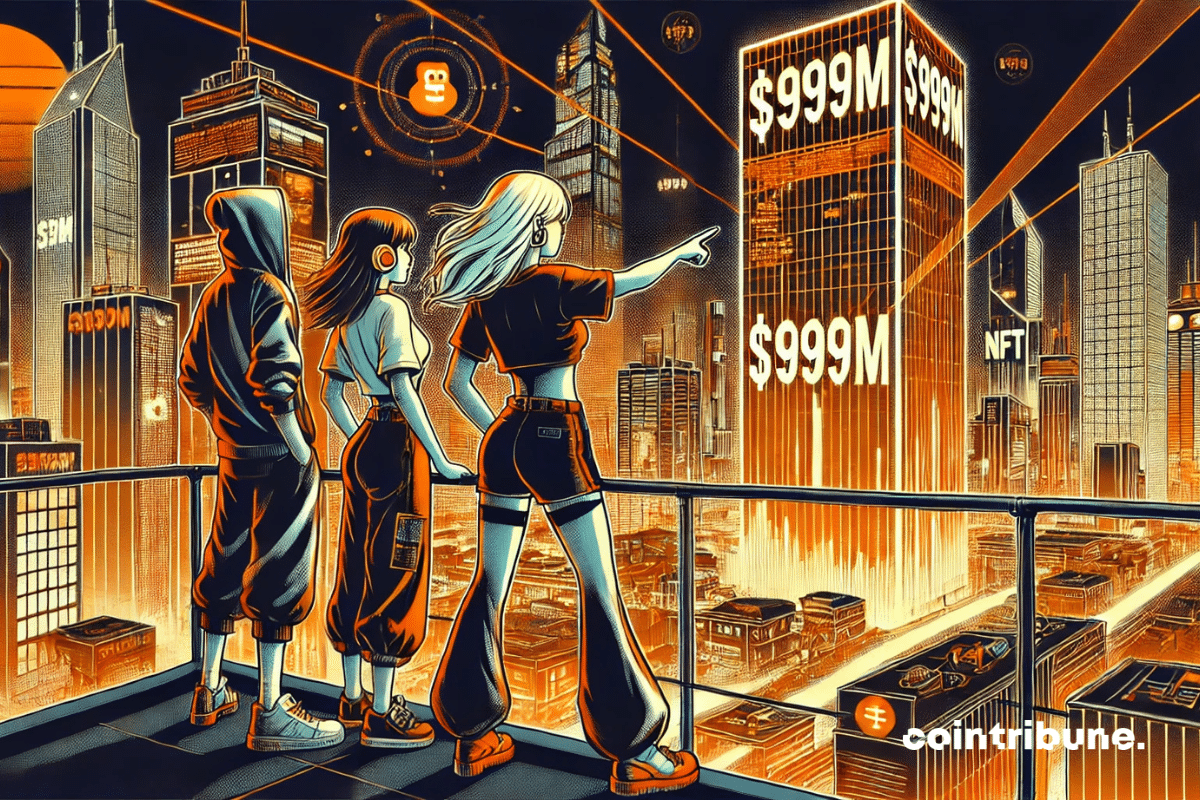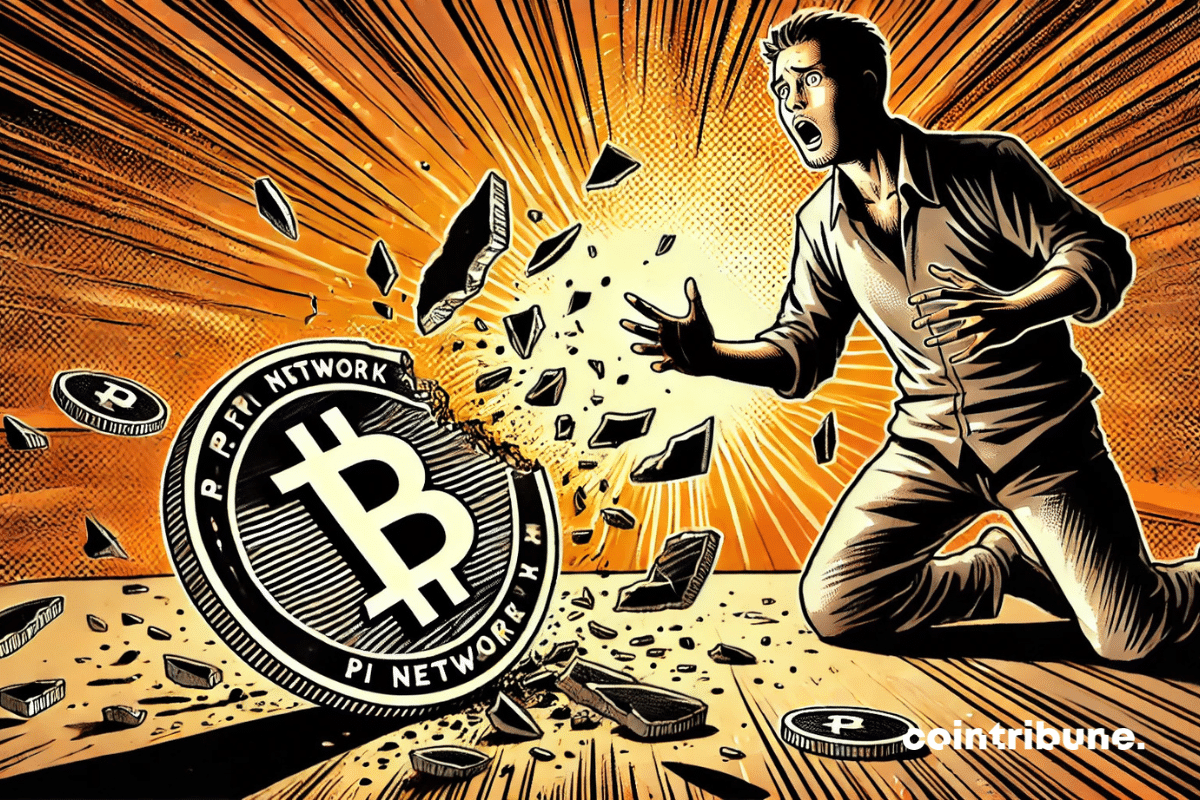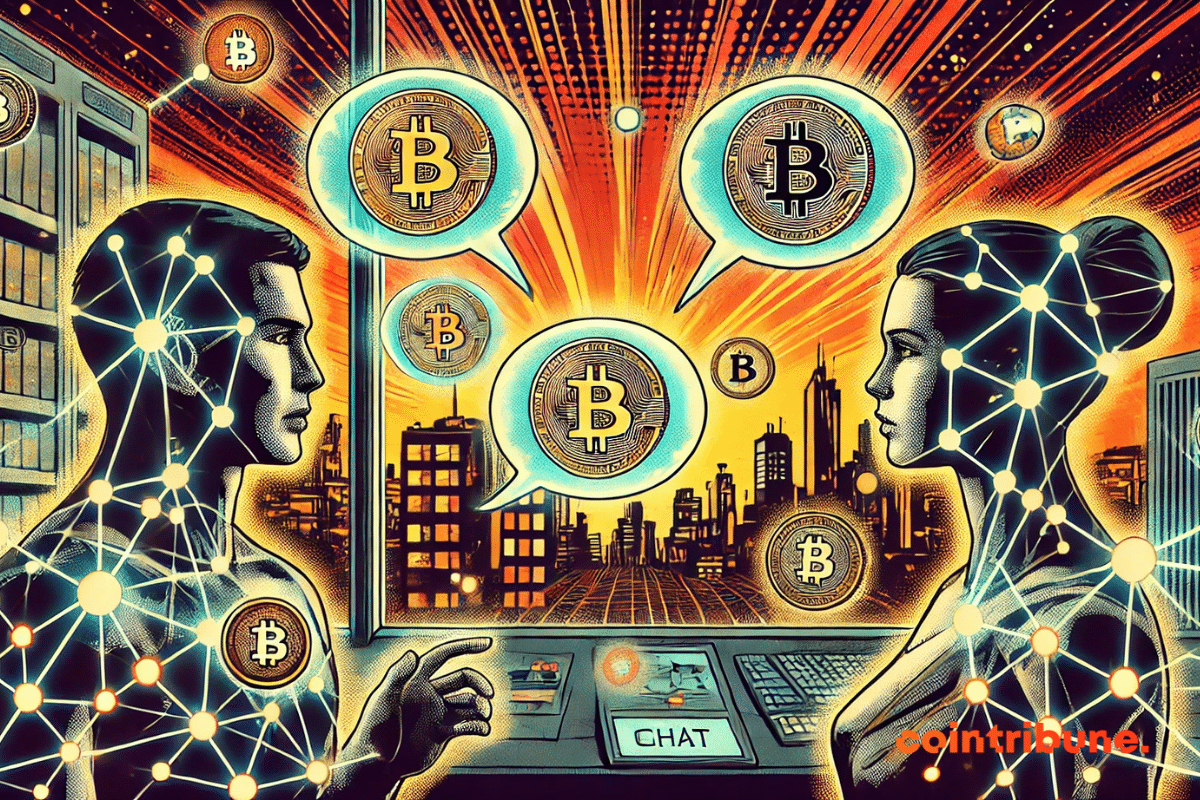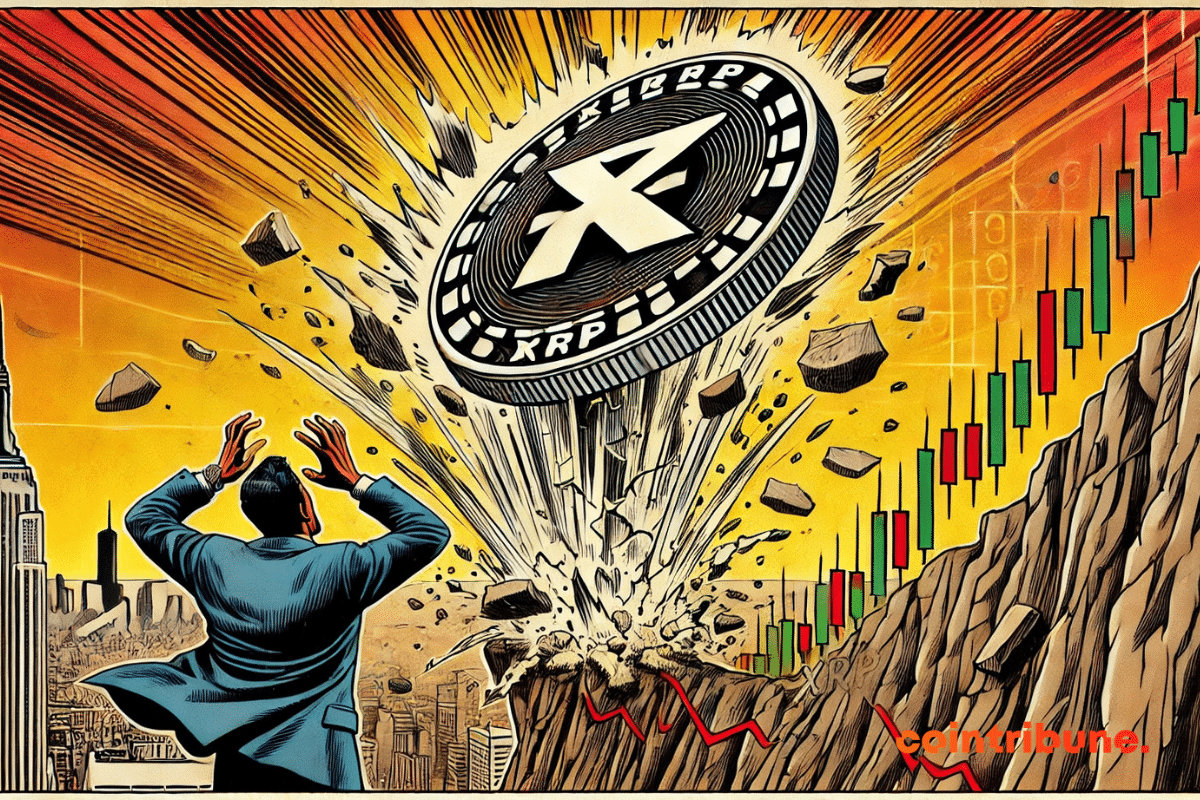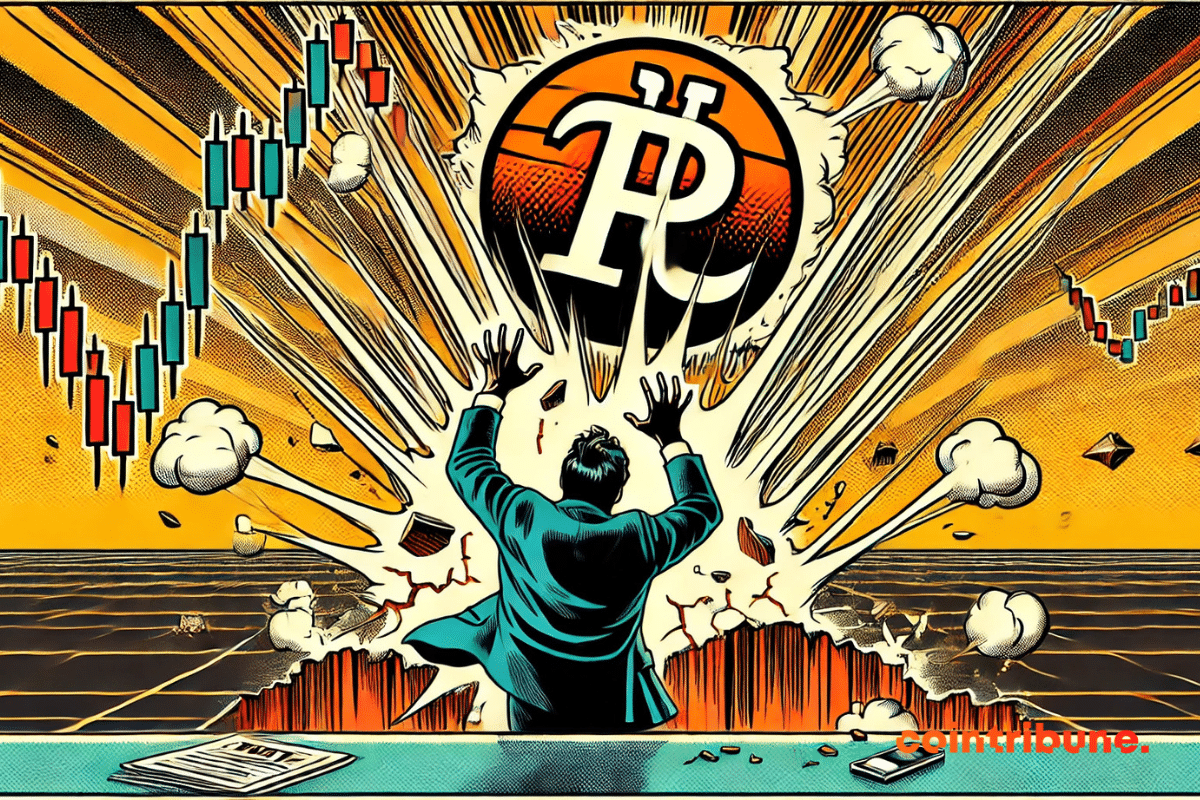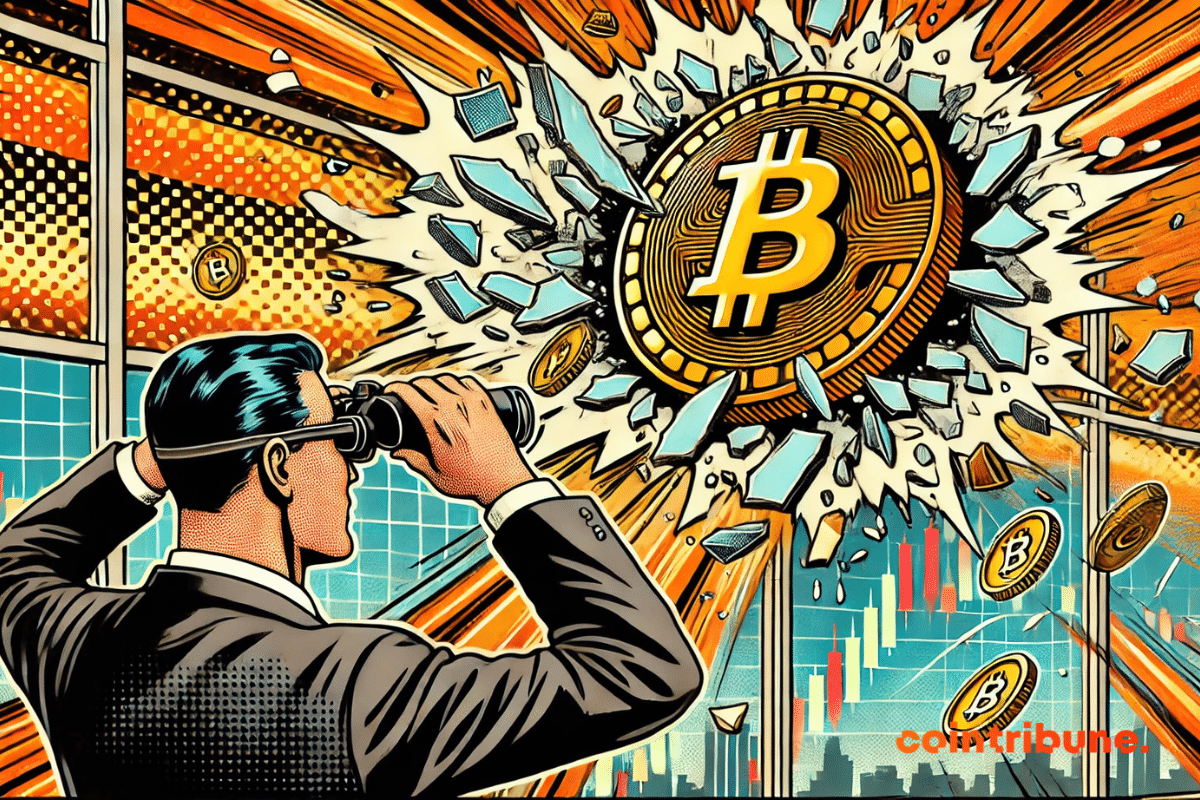Amid revolutionary announcements, technological evolutions, and regulatory turbulence, the crypto ecosystem continues to prove that it is both a territory of limitless innovations and a battleground of regulatory and economic conflicts. Here is a summary of the most significant news from the past week regarding Bitcoin, Ethereum, Binance, Solana, and Ripple.
Home » Archives for Luc Jose Adjinacou » Page 20
Luc Jose A.
Diplômé de Sciences Po Toulouse et titulaire d'une certification consultant blockchain délivrée par Alyra, j'ai rejoint l'aventure Cointribune en 2019. Convaincu du potentiel de la blockchain pour transformer de nombreux secteurs de l'économie, j'ai pris l'engagement de sensibiliser et d'informer le grand public sur cet écosystème en constante évolution. Mon objectif est de permettre à chacun de mieux comprendre la blockchain et de saisir les opportunités qu'elle offre. Je m'efforce chaque jour de fournir une analyse objective de l'actualité, de décrypter les tendances du marché, de relayer les dernières innovations technologiques et de mettre en perspective les enjeux économiques et sociétaux de cette révolution en marche.
Binance merges two worlds that are opposed to each other. For the first time, users of a centralized exchange can interact with DEXs without leaving their interface. An innovation that radically simplifies access to DeFi, which has long been hindered by its technical complexity. By unifying these universes, Binance could well reshape the future of crypto exchanges.
As wealth inequalities worsen, another reality looms: Generation Z, often perceived as economically fragile, is set to become the richest in history by 2045. A study by Bank of America challenges preconceived notions by projecting an unprecedented shift of wealth towards this hyperconnected youth. Contrary to alarmist narratives, these forecasts reveal a generation on the rise, driven by economic, educational, and digital dynamics that are reshaping the contours of global financial power.
Announced as a strategic turning point, the integration of Pi Network into the Telegram wallet provided an unprecedented showcase for a project that already boasted a massive community. In an ecosystem where visibility can skyrocket an asset, PI seemed to be in a strong position. However, contrary to expectations, the token collapsed. The promise of accelerated adoption collided with the reality of the market. How can such a dissonance between the potential of an announcement and the brutality of a fall that raises questions about the project's solidity be explained?
Solana is experiencing an unprecedented surge in activity: 11.12 million active addresses. In a crypto market where actual usage now takes precedence over promises, this figure marks the return of a network that some said was losing momentum, now propelled by visible, measurable, and concrete adoption. This dynamic, more than symbolic, repositions Solana as a structuring player in the ecosystem, with clear signals of resilience and traction.
Bitcoin is dropping, but the real movement might come from elsewhere. While the market is taking a rapid downturn, some analysts are already betting on another engine: the massive return of liquidity from central banks. Behind the numbers, a global monetary dynamic is emerging, far more decisive than the ongoing correction. BTC is wavering, but the incoming capital flow could rewrite everything.
The dominance of the US dollar in international trade and global reserves has never been so challenged. Indeed, Deutsche Bank is sounding the alarm on a growing phenomenon: dedollarization among the allies of the United States. In the face of geopolitical tensions and financial sanctions, several nations are seeking to reduce their dependence on the greenback. If this trend accelerates, the impact could be considerable, drastically altering the global monetary balance and redefining the power dynamics within the international financial system.
The era of crypto interactions takes a new turn with ReachMe.io, the paid messaging platform launched by Binance and backed by BNB. This service allows users to communicate directly with opinion leaders for a crypto transaction fee. In 48 hours, the platform attracted 3,262 users and generated $24,000. An initiative that strengthens the utility of BNB and raises questions about the accessibility and monetization of exchanges in the Web3 ecosystem.
The volatility of Bitcoin is resurfacing. After a peak above $84,000, the cryptocurrency fell by 3.5% within a few hours. This decline fuels fears of a return to $72,000, a scenario that seemed unthinkable not long ago. The cause? Uncertain macroeconomic liquidity conditions, which undermine risky assets. Some analysts believe that the market could enter a critical phase, where the evolution of monetary policies and investors' appetite for risk will be decisive.
The crypto market is wavering, and XRP finds itself on the front line. After a phase of technical instability, the situation deteriorated with the announcement of new customs tariffs by Donald Trump on automotive imports. A double blow, amplified by the lowered expectations for a monetary easing from the Fed. In this uncertain climate, analysts fear a 40% drop, threatening to plunge XRP into a downward spiral. Amid alarming technical signals and macroeconomic tensions, the market is holding its breath.
Gold is no longer just a safe haven. It has become an instrument of economic power. In 2024, the BRICS have massively accumulated the precious metal, anticipating a tightening of American trade policies. This bet is proving to be worthwhile, as the new tariffs announced by Donald Trump triggered a historic surge in gold prices. As the trade war intensifies, the yellow metal is asserting itself as the monetary weapon of emerging powers against the dominance of the dollar.
The bitcoin market enters a pivotal day with the expiration of $16.5 billion in options, a record that could shape its short-term trajectory. While the $90,000 mark seemed within reach, an unexpected pullback has weakened bullish positions, providing sellers with a strategic opportunity. In this battle between buyers and sellers, the outcome will depend on price movements in the coming hours, with potential impacts far beyond this single expiration. The market holds its breath, ready to tilt one way or the other.
When justice resolves a long-standing conflict, markets do not hesitate to draw their conclusions. Thus, the end of the duel between Ripple and the SEC goes beyond the judicial framework: it reshapes the future of XRP. As regulatory uncertainty fades, a new dynamic emerges. Predictive markets are already getting excited: is an XRP ETF now inevitable? With influential players watching for any opening, Ripple may finally see a door that has long been closed open. But, is the SEC ready to take this step?
In the crypto market, where turbulence is common, some declines stand out more than others. Pi Network, once seen as a promising project, has seen its price collapse to a historic low, shaking investor confidence. As the token struggles to gain ground on major exchange platforms, its trading volume is dropping, a sign of growing disinterest. Can Pi still rebound, or are we witnessing the collapse of a promise never fulfilled?
Predictions shape the crypto market, especially when they come from seasoned analysts. As Bitcoin surpasses $85,000, attention turns to its outlook. One statement particularly stands out: Timothy Peterson estimates a 75% probability that BTC will reach a new ATH by the end of the year. His analysis is based on historical data from the network, far from risky speculations. As the halving approaches, this forecast fuels debates and could influence investors' decisions.

